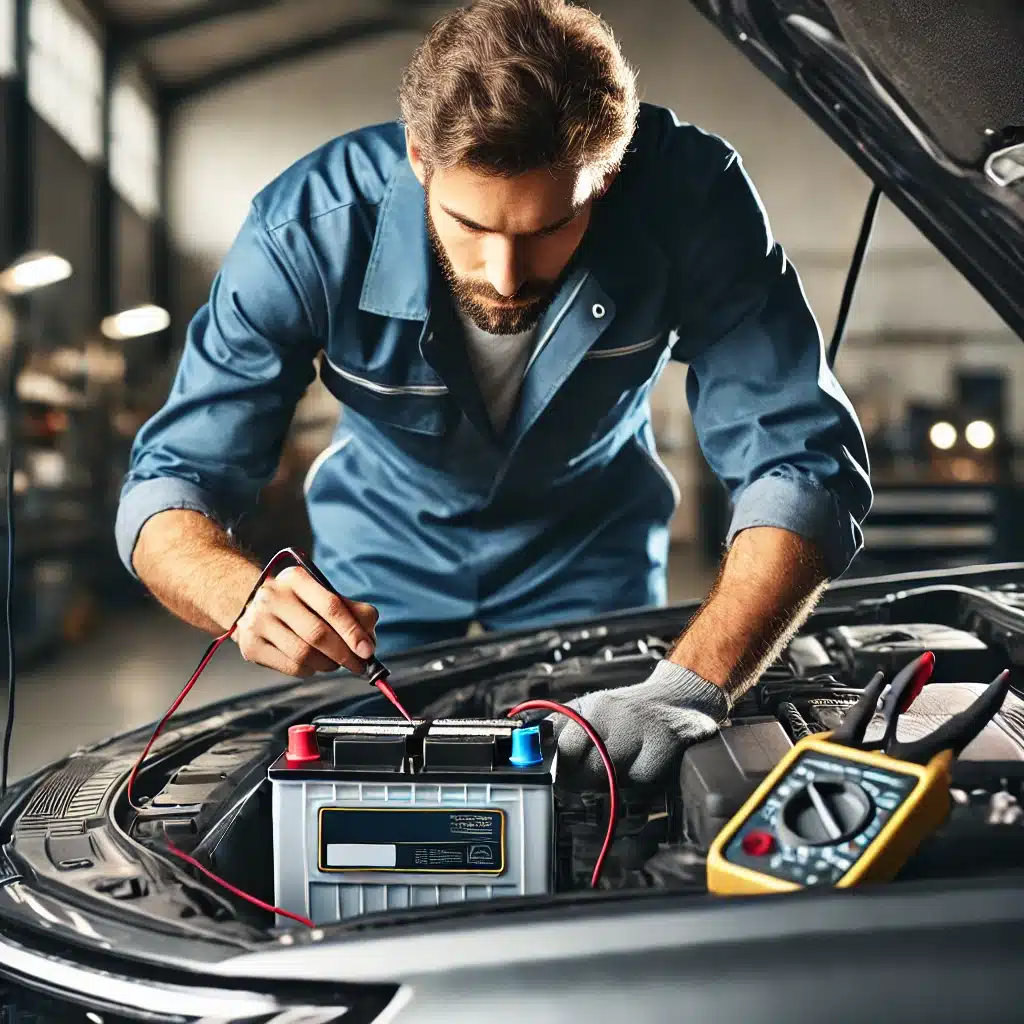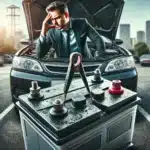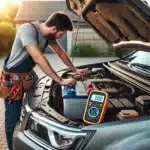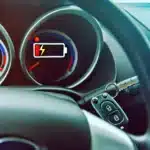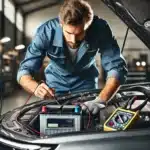Imagine you’re heading out on a road trip, excited and ready to go. You start your car, but nothing happens. You try again, and still, the car refuses to start. What’s the issue? More often than not, it’s a problem with the car battery. While car batteries are designed to last a long time, they can face issues that can prevent your car from starting or cause other problems.
Table of contents
- Understanding Common Battery Problems In Cars, Symptoms, and Solutions
- 1- Dead Car Battery: The Most Common Culprit
- 2- Faulty Alternator: A Hidden Issue Behind Battery Problems
- 3- Corroded Battery Terminals
- 4- Loose or Worn Battery Cables
- 5- Cold Weather and Battery Performance
- 6- Undercharged or Overcharged Battery
- 7- Overuse of Car Accessories
- 8- Old Battery: Time for a Replacement
- 9- Electrical Short or Grounding Issues
- 10- Faulty Fuses
- 11- Battery Draining Due to Parasitic Draw
- 12- Poor Driving Habits
- 13- Storing Your Car Long-Term
- Conclusion
In this article, we’ll explore the most common battery problems in cars, provide practical solutions for each one, and highlight key symptoms that will help you identify the problem.
Understanding Common Battery Problems In Cars, Symptoms, and Solutions
1- Dead Car Battery: The Most Common Culprit
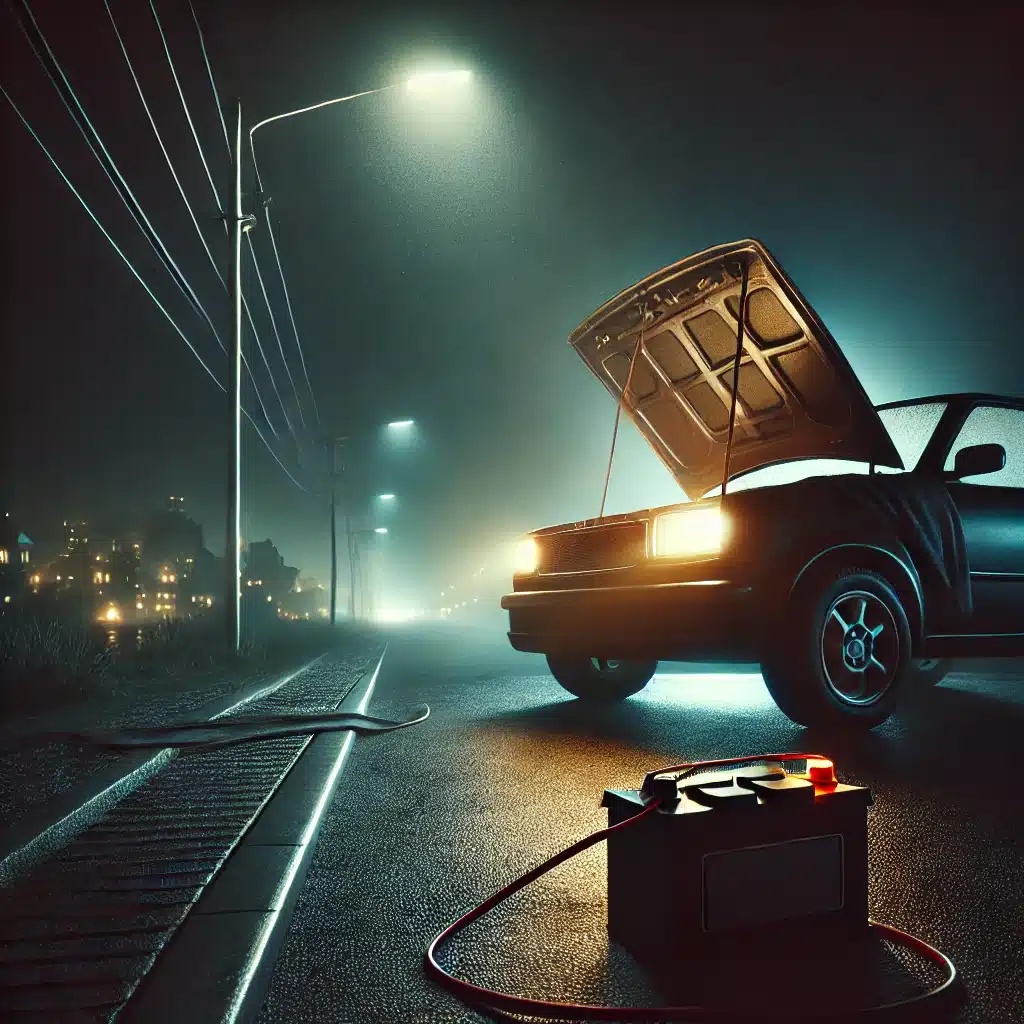
A dead car battery is probably the first thing that comes to mind when your car refuses to start. This usually happens when the battery doesn’t have enough charge to power the engine or accessories. A few reasons can cause this, including leaving the headlights on overnight, using the car infrequently, or simply having an old battery.
Symptoms of a Dead Car Battery
- The car doesn’t start when you turn the key, or it cranks very slowly.
- The dashboard lights and headlights are dim or don’t turn on.
- You hear a clicking sound when trying to start the car.
Solution for Dead Car Battery
Jump-Start the Battery: If you’re stuck with a dead battery, a jump-start can get you back on the road quickly. You’ll need jumper cables and another car with a working battery.
Replace the Battery: If the battery is old and jump-starting doesn’t work, it may be time for a replacement. Batteries typically last between 3-5 years.
2- Faulty Alternator: A Hidden Issue Behind Battery Problems
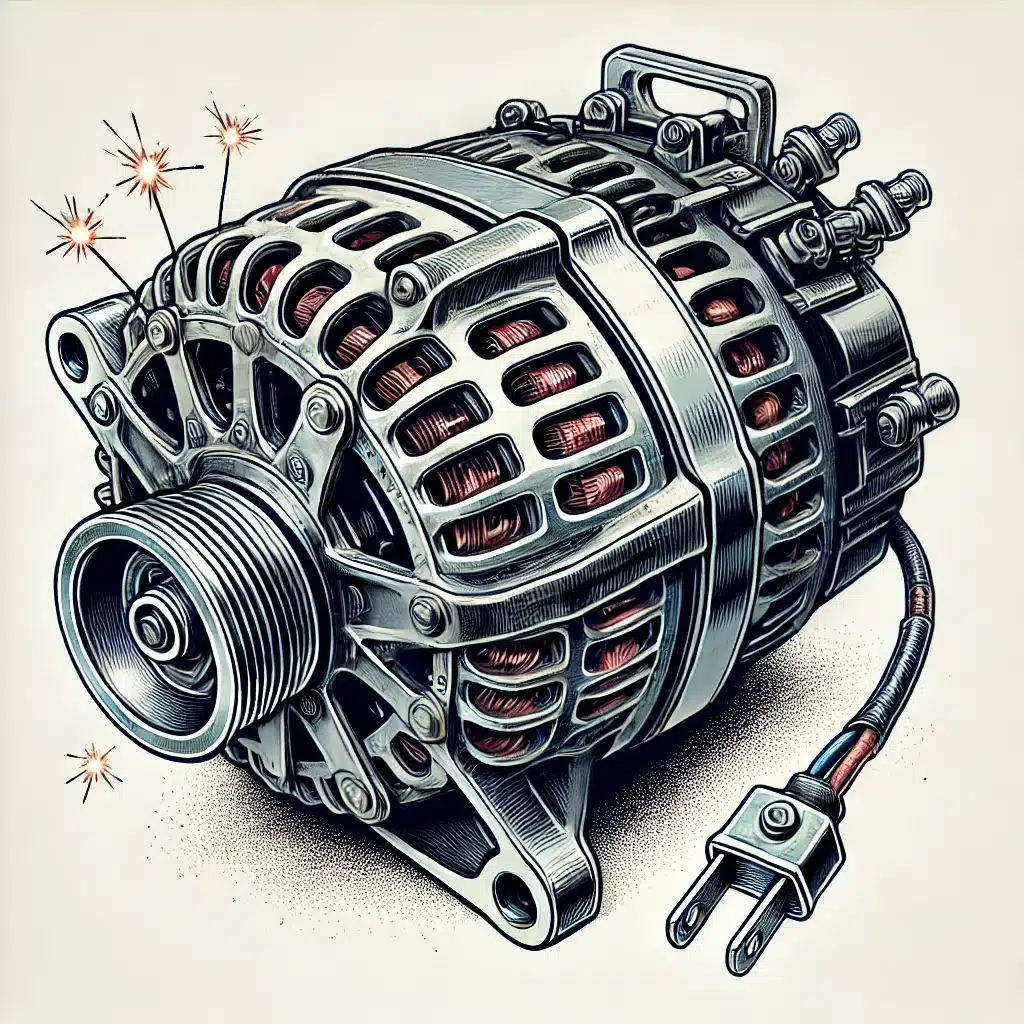
Sometimes, the problem isn’t with the battery at all. If your battery constantly dies, even after replacement, the issue could be the alternator. The alternator is responsible for charging the battery while the car is running. If it’s not working properly, your battery won’t charge correctly, leading to constant power issues.
Symptoms of a Faulty Alternator
- Dim or flickering lights when driving, especially at low speeds.
- Warning light on the dashboard (often shaped like a battery).
- Strange noises, such as a whining or grinding sound, coming from the engine.
- Dead battery despite having a new or charged battery.
What to Do?
If you suspect a faulty alternator, take your car to a mechanic. They can test the alternator and replace it if needed.
3- Corroded Battery Terminals
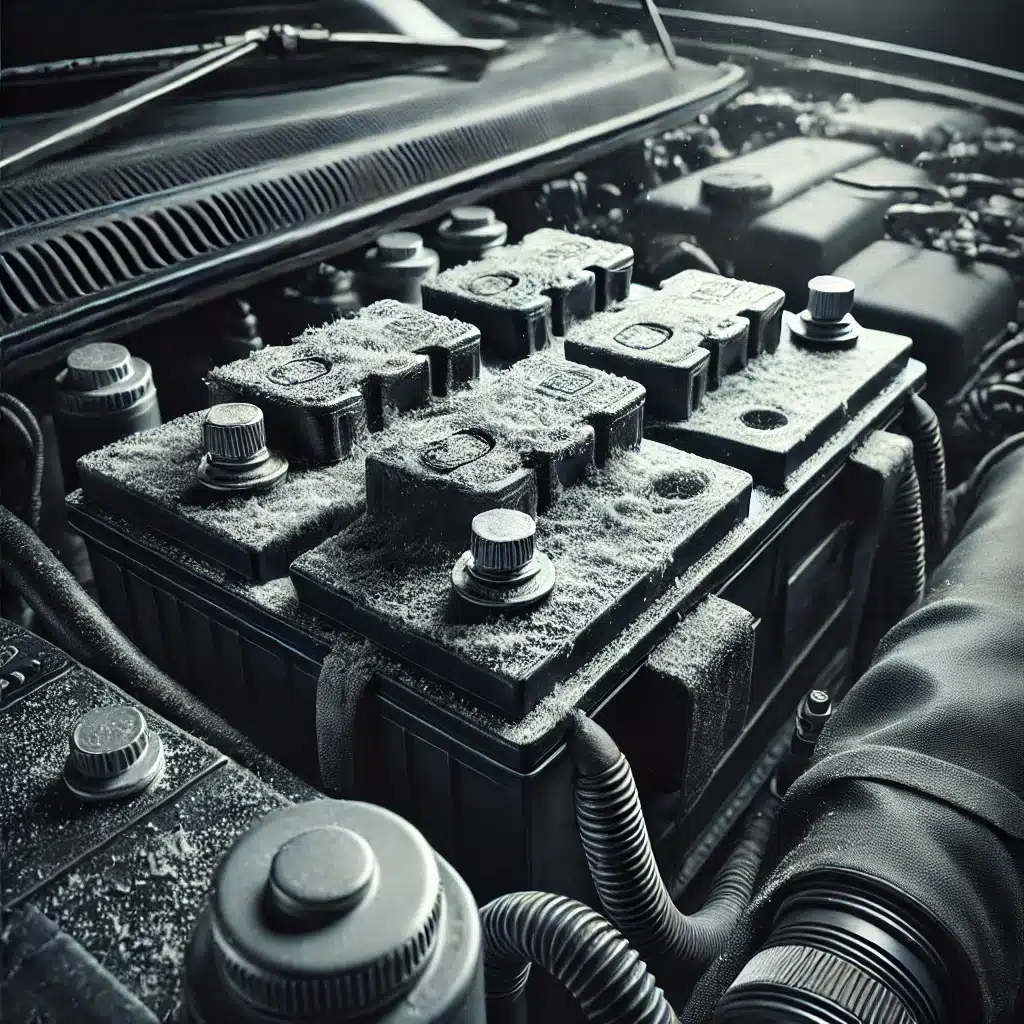
Over time, the terminals on your car’s battery can corrode due to exposure to moisture and dirt. This corrosion can prevent the proper flow of electricity, which could be the reason your car struggles to start.
Symptoms of Corroded Terminals
- Difficulty starting the car or flickering dashboard lights.
- White, powdery substance around the battery terminals.
- Loose or disconnected cables.
Solution
You can clean the terminals at home using a mixture of baking soda and water. Scrub the corrosion with a wire brush, and make sure the terminals are tightly connected to the battery posts. Be sure to wear gloves to protect yourself from acid residue.
4- Loose or Worn Battery Cables

Loose or damaged battery cables can lead to electrical issues in your car. If the battery cables are not making a solid connection, it can cause poor battery performance, making it difficult to start the car or keep it running.
Symptoms of Loose or Worn Cables
- Car struggles to start or doesn’t start at all.
- Visible wear or fraying on the cables.
- Sparks when trying to connect or disconnect the battery.
Solution
Ensure the battery cables are tightly connected. If the cables appear frayed or worn out, they should be replaced immediately to avoid further electrical issues.
5- Cold Weather and Battery Performance
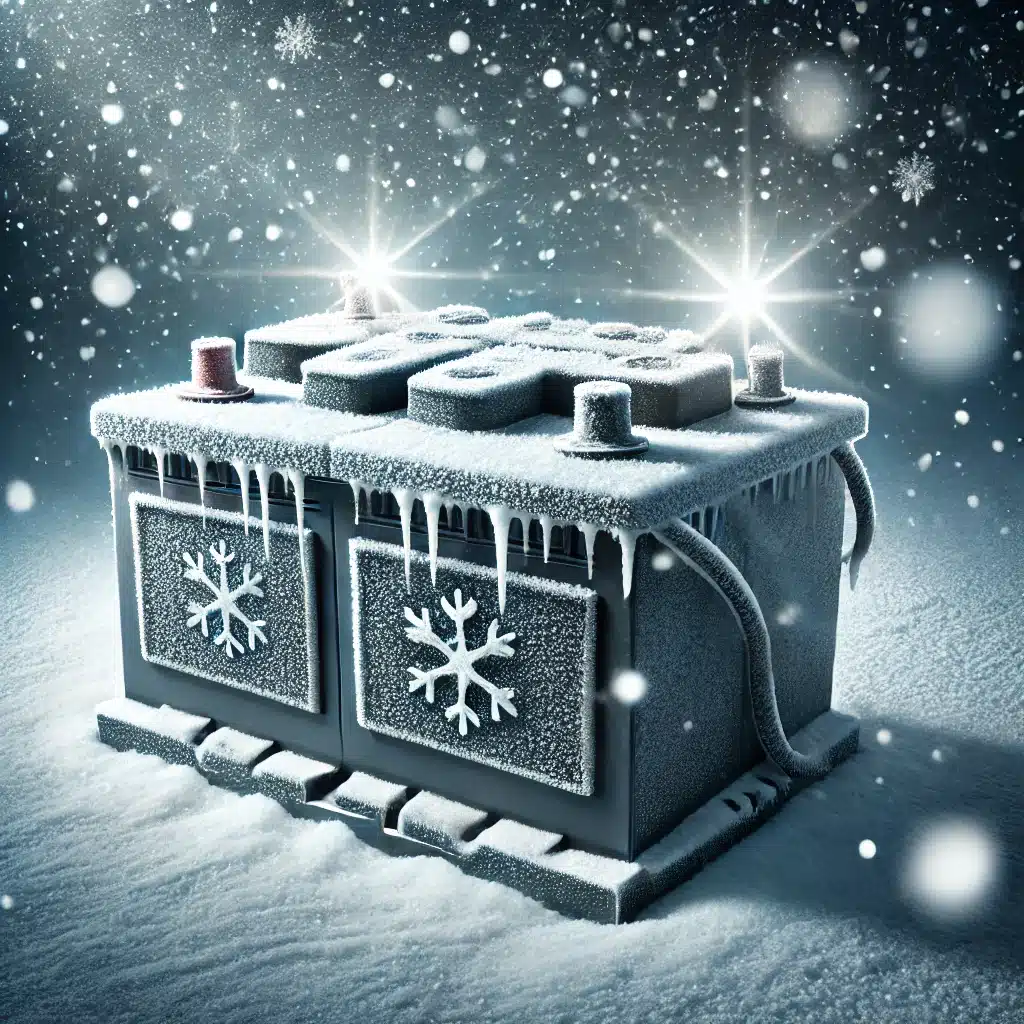
Cold weather can affect the performance of your car’s battery. When temperatures drop, the battery’s chemical reaction slows down, which reduces its ability to generate power. This can make it harder for the battery to start the car, especially if it’s already old or weak.
Symptoms of Cold Weather Battery Issues
- Difficulty starting the car, particularly in the morning or after being parked outside in cold temperatures.
- Dim headlights or dashboard lights that appear weaker in the cold.
- Battery performance worsens gradually with the cold weather.
Solution
Keep the Car in a Warm Area: Parking your car in a garage or other warm location can help reduce the strain on the battery in cold weather.
Use a Battery Blanket: For extreme cold, consider using a battery blanket that helps maintain the battery’s temperature.
6- Undercharged or Overcharged Battery
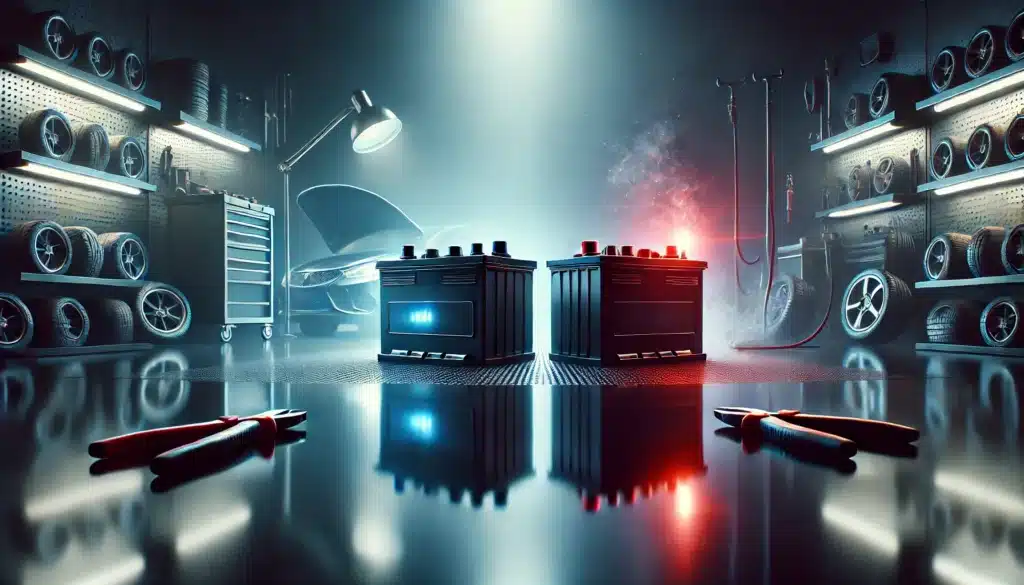
Your car battery can also face problems if it’s undercharged or overcharged. An undercharged battery won’t have enough power to start the car, while an overcharged battery can cause it to overheat and break down. Both scenarios can reduce the lifespan of your battery.
Symptoms of an Undercharged or Overcharged Battery
- Car struggles to start, or you notice electrical components are weak.
- An overcharged battery might cause the car to overheat or produce a burning smell.
- Fluctuating lights or strange electrical behavior in the car.
Solution
Use a Battery Charger: If the battery is undercharged, using a charger can help bring it up to the proper level.
Get the Charging System Checked: If the battery is overcharging, the alternator or voltage regulator might malfunction. A mechanic can diagnose and fix the issue.
7- Overuse of Car Accessories
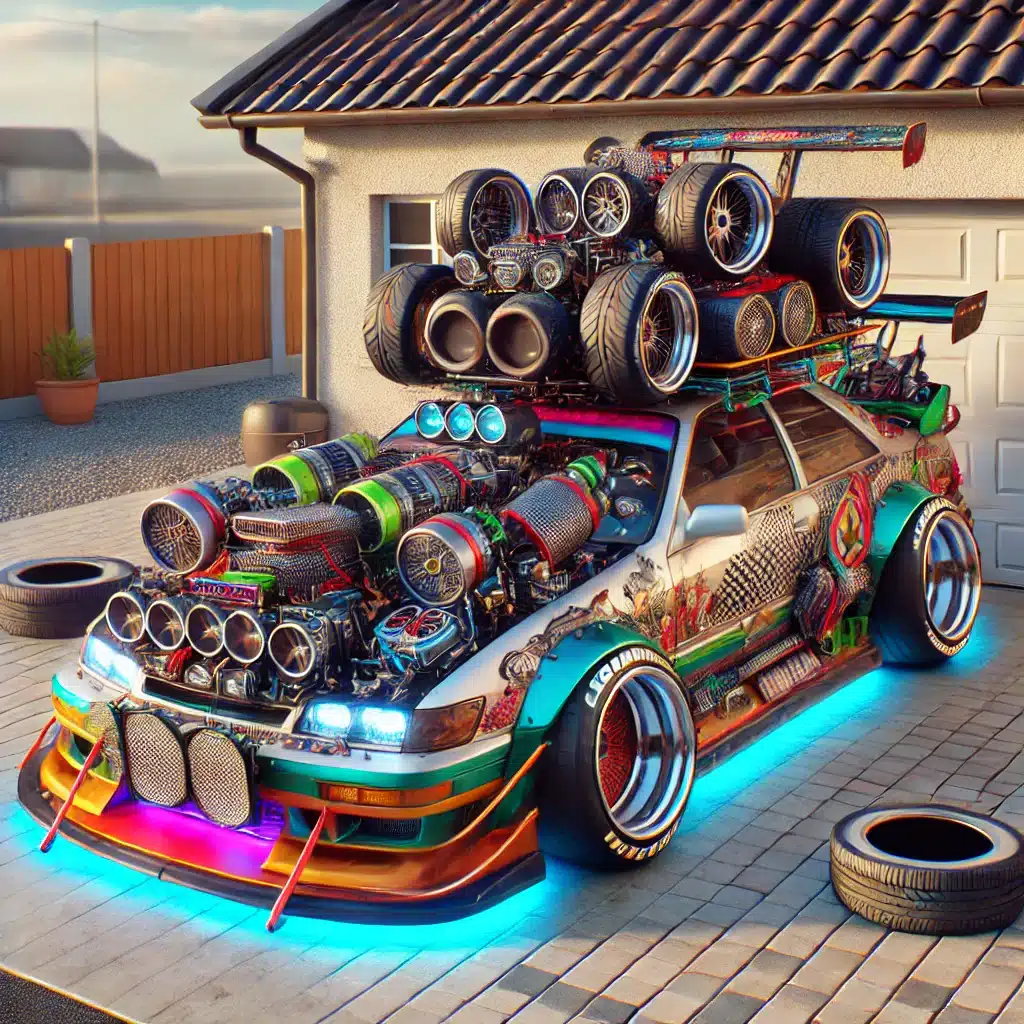
Sometimes, it’s not just the battery itself that’s the issue. Using too many car accessories, such as the radio, air conditioning, or heated seats, can drain the battery faster than usual. If your car is not being used frequently, these drains can cause a problem.
Symptoms of Overuse of Car Accessories
- Difficulty starting the car, especially after using power-draining accessories like the heater or air conditioning.
- Rapid draining of battery charge, particularly when the car isn’t running long enough to recharge the battery.
Solutions
Avoid leaving accessories on when the car is not running, and limit the use of power-consuming features when the engine is off.
8- Old Battery: Time for a Replacement
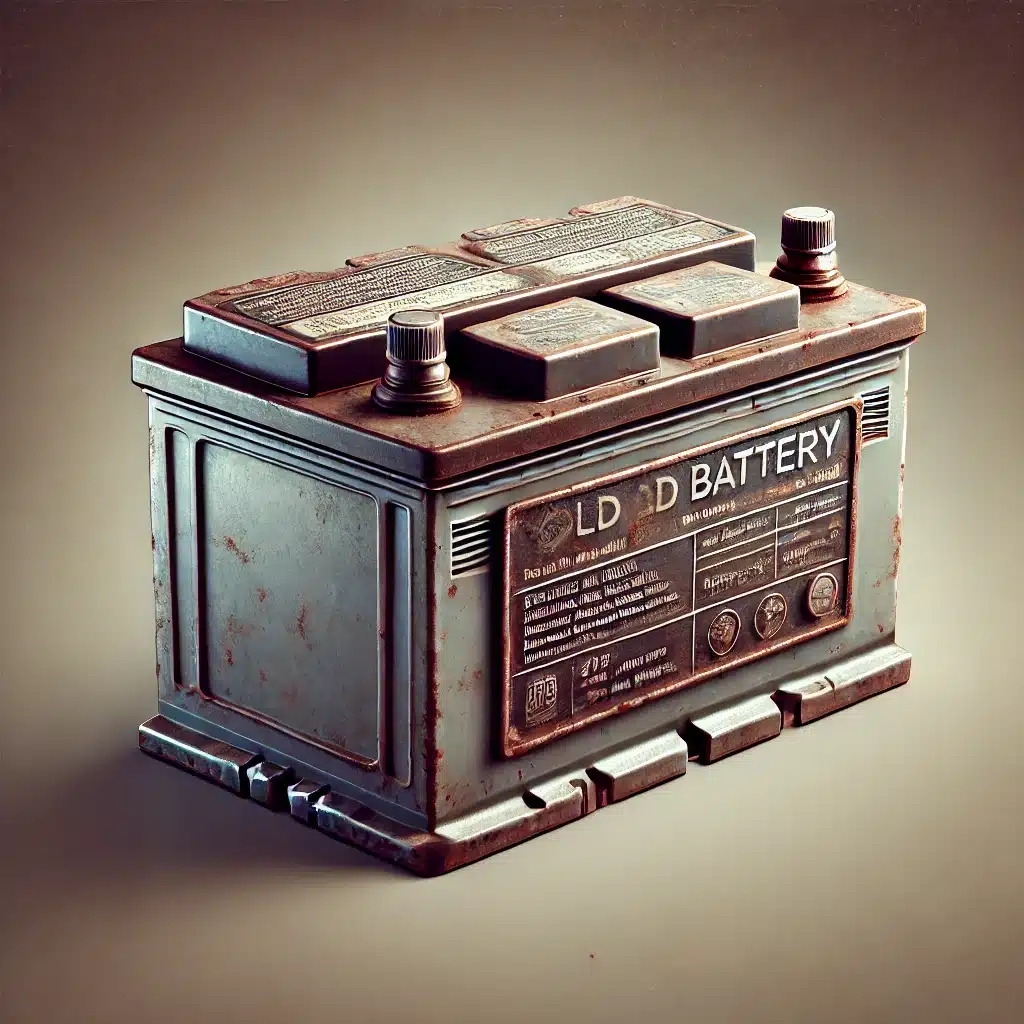
As car batteries age, their capacity to hold a charge decreases. If your car is constantly having trouble starting, even though you’ve cleaned the terminals and checked the cables, it might be time to replace the battery. After all, no matter how much maintenance you perform, batteries have a finite lifespan.
Symptoms of an Old Battery
- Difficulty starting the car, especially on cold mornings.
- Dashboard warning lights may appear, indicating low battery voltage.
- The battery has already been in use for more than 3-5 years.
Solutions
Check Battery Age: Most batteries have a date code on the side. If your battery is over 5 years old, it might be time for a replacement.
Test the Battery: A battery tester can tell you whether your battery is still holding a proper charge or if it’s time to replace it.
9- Electrical Short or Grounding Issues

Sometimes, electrical shorts or grounding problems within the car can cause the battery to drain or prevent the car from starting. These issues are often harder to diagnose, but they can be caused by faulty wiring or damaged components.
Symptoms of Electrical Short or Grounding Issues
- Car won’t start or suddenly stops while driving.
- The battery drains faster than normal.
- Lights or electrical components malfunction or don’t work at all.
Solutions
Take your car to a mechanic to diagnose and fix the electrical short or grounding problem. They will have the tools and expertise to pinpoint the issue and recommend repairs.
10- Faulty Fuses
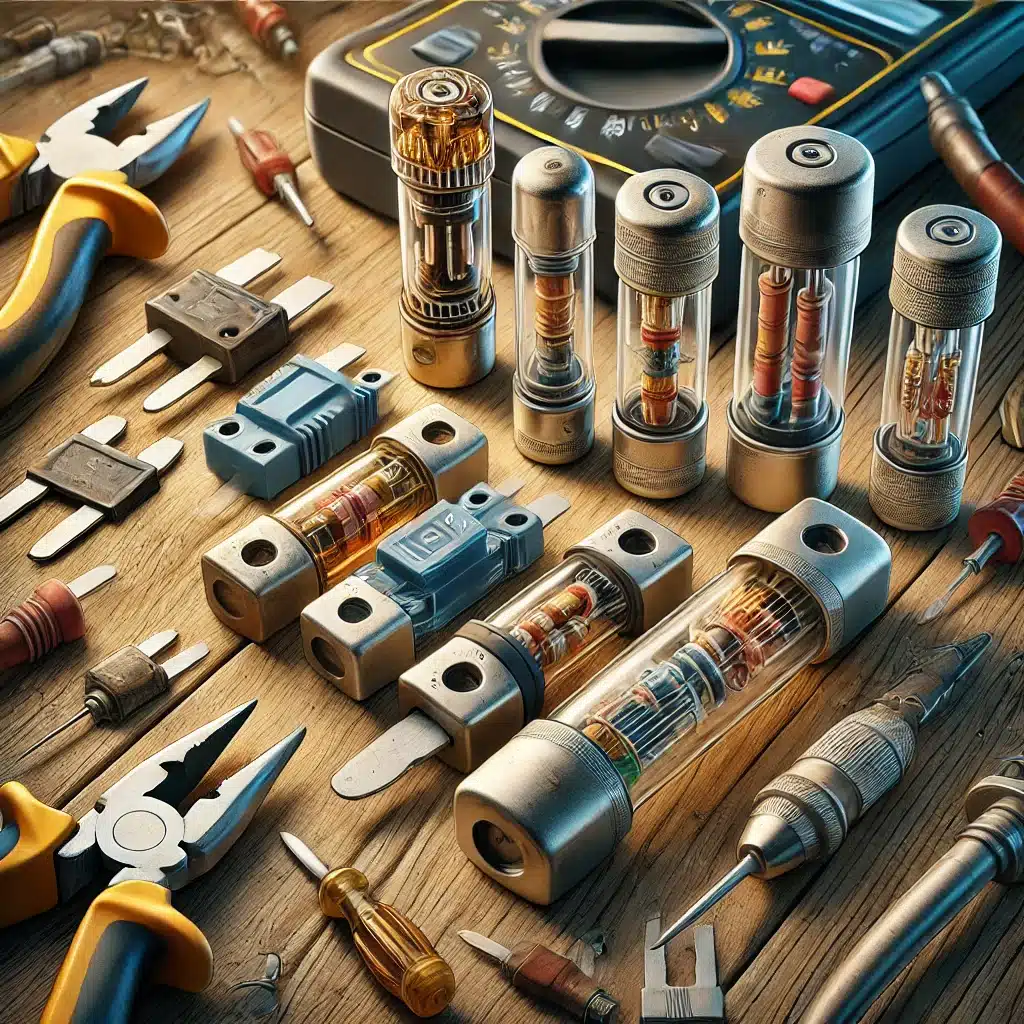
Fuses play a crucial role in protecting your car’s electrical system from overload. If a fuse blows, it can stop certain components from working, including the battery charging system. This can cause battery issues that prevent the car from starting.
Symptoms of Faulty Fuses
- The car doesn’t start, or there are problems with the electrical system.
- Dashboard warning lights may not illuminate, or they may behave erratically.
Solutions
Check the fuses and replace any that appear blown. Your car’s manual will tell you which fuse corresponds to the charging system. If you’re unsure, a mechanic can help.
11- Battery Draining Due to Parasitic Draw
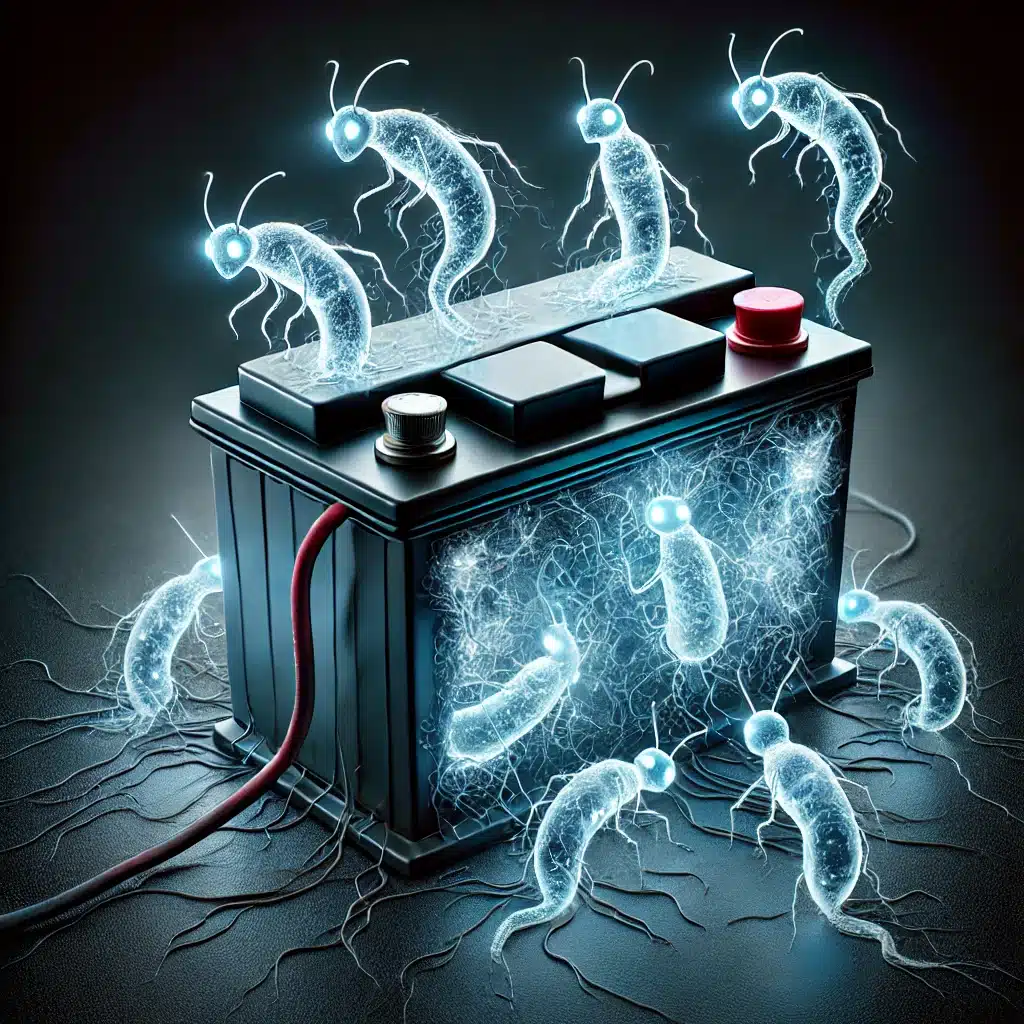
A parasitic draw happens when your car’s electrical system continues to use power even when the car is off. This can lead to a drained battery. Common culprits for parasitic draws include faulty alternators, worn-out fuses, or even malfunctioning electronic devices in the car.
Symptoms of Parasitic Draw
- Car won’t start, even though the battery seems charged.
- Battery drains overnight without any obvious cause.
- Electrical components continue to drain power when the car is turned off.
Solutions
If you suspect parasitic draw, have a mechanic perform a parasitic draw test. They will be able to isolate the source and fix the issue.
12- Poor Driving Habits

While not a direct problem with the battery, poor driving habits can contribute to battery issues. Short trips, for example, don’t allow the alternator enough time to recharge the battery fully. If you’re only driving short distances, your battery may not be getting enough charge to stay healthy.
Symptoms of Poor Driving Habits
- The battery seems to be drained quickly after short trips.
- Difficulty starting the car after frequent short trips or brief drives.
Solutions
Try to take longer trips to allow the battery to recharge properly. If possible, avoid taking short trips frequently, as this can stress the battery.
13- Storing Your Car Long-Term

If you’re not planning to use your car for a long period, your battery can slowly lose charge. This is common with people who have seasonal cars or who go on long vacations.
Symptoms of Battery Draining During Long-Term Storage
- The car won’t start after being stored for an extended period.
- The battery seems dead, even though it was working fine before.
Solutions
Use a Trickle Charger: A trickle charger can keep your battery at the proper charge level when the car is not in use.
Remove the Battery: If you’re storing the car for several months, removing the battery and keeping it in a cool, dry place can help preserve its charge.
Conclusion
Car battery problems are common but usually easy to fix with the right knowledge and tools. From dead batteries and corroded terminals to faulty alternators and cold weather issues, understanding what’s causing your battery troubles can help you address the problem quickly.
Regular maintenance, proper driving habits, and timely replacements are the keys to keeping your battery in good condition and your car running smoothly. If you’re ever in doubt, don’t hesitate to consult a professional mechanic for advice or repair.
Read about Top Car Battery Warning Signs You Must Know!

